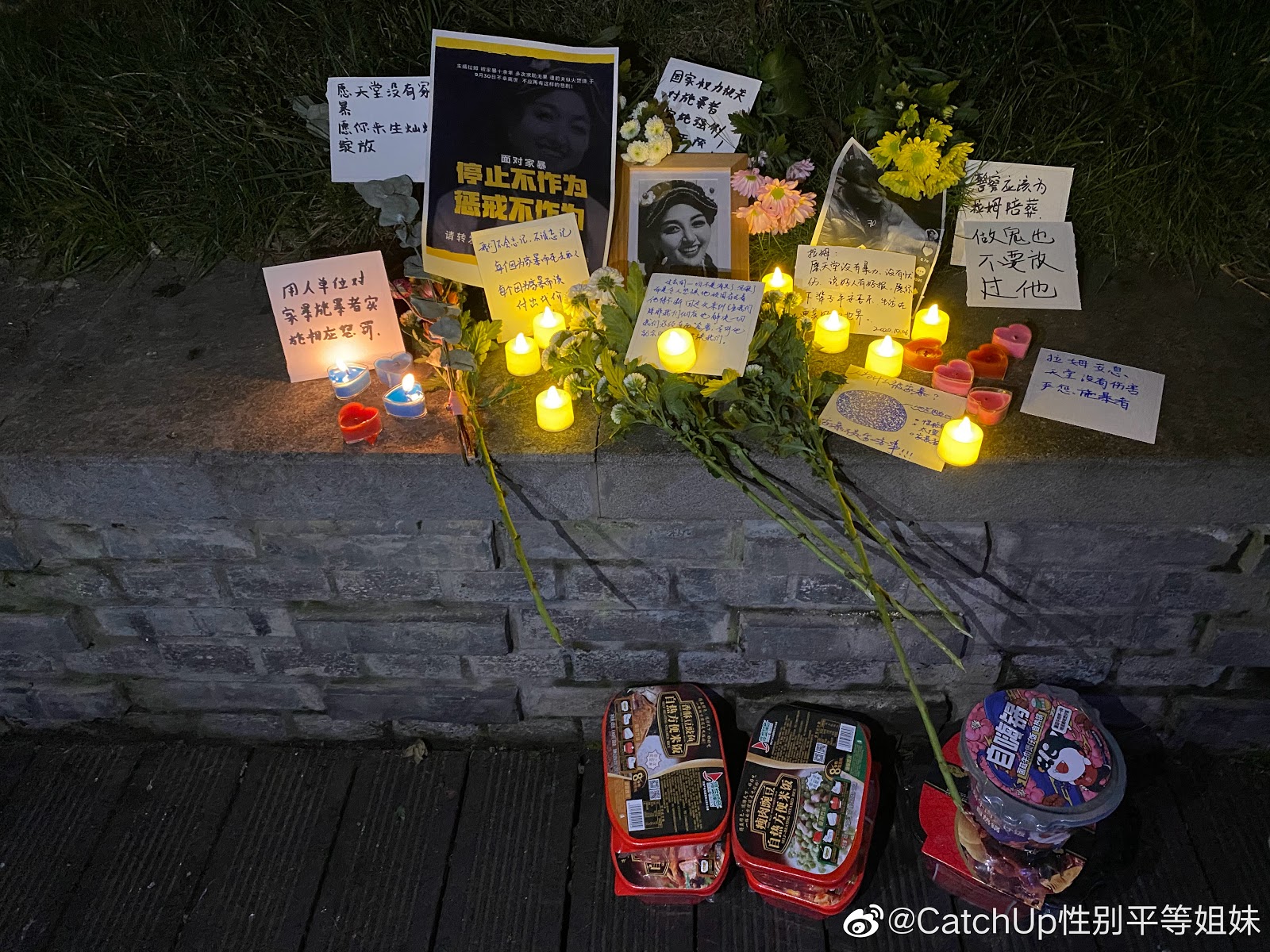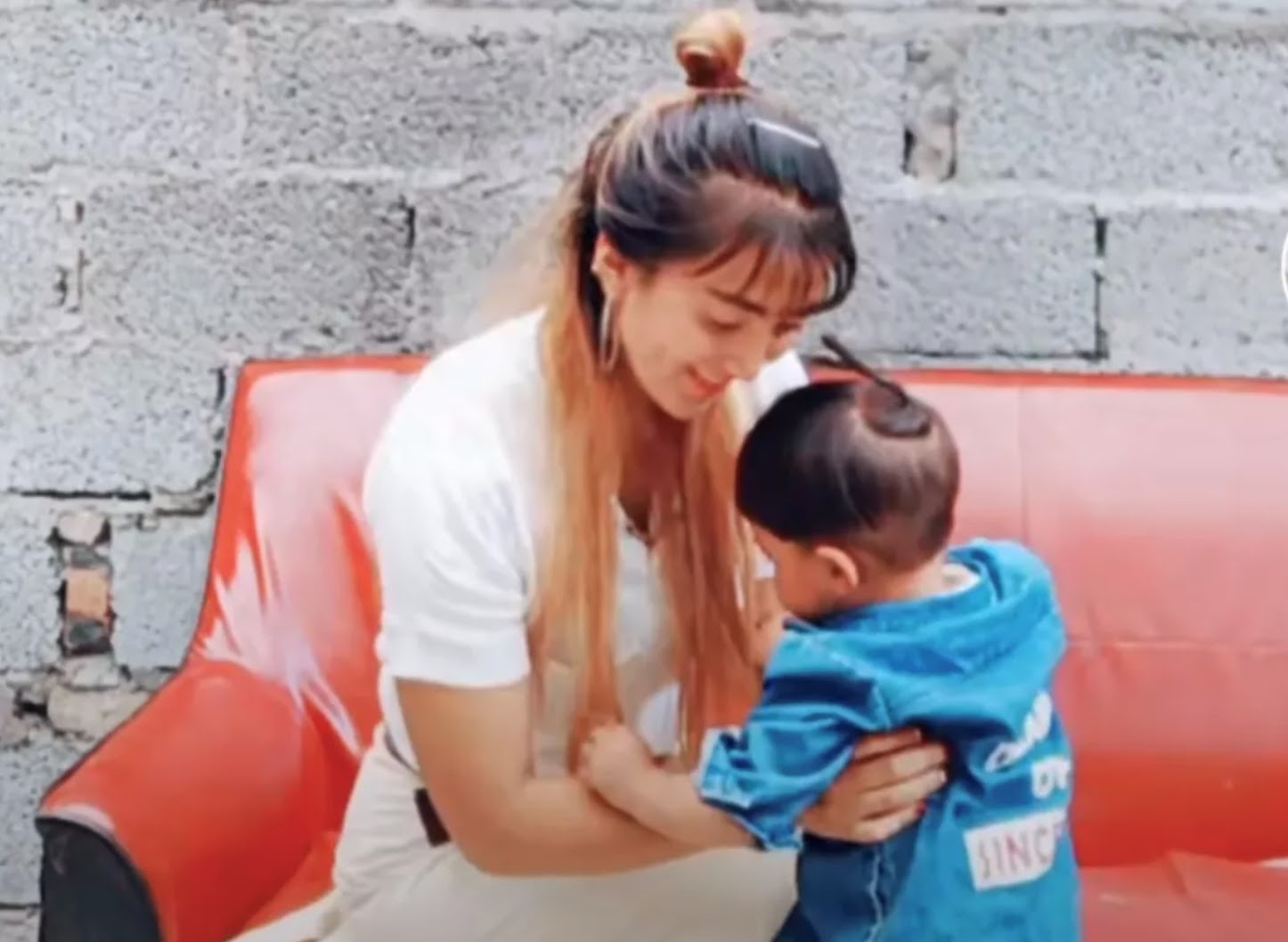Tibetan influencer Lhamo’s murder is a grim reminder that China still fails victims of domestic violence
On Chinese social media, the gruesome killing of Lhamo has inspired outrage. Despite domestic violence being a serious issue that has significant negative implications for Chinese women, the country still lacks adequate, timely protections for victims of intimate partner violence.

Lhamo 拉姆, a Tibetan woman with over 720,000 followers on Chinese short-video app Douyin, died on September 30, roughly three weeks after her ex-husband set her on fire, causing significant burns.
The story is tragically familiar: Lhamo tried repeatedly to protect herself and her two children from her partner, identified only by his surname, Táng 唐, whom she started dating when she was 17. She divorced him, remarried, and divorced him again due to his violent behavior. She called the police, multiple times, when abuse occured, but her complaints weren’t taken seriously and she never received the protection she sought.
Then, on September 14, when Lhamo was livestreaming from her kitchen, Tang broke into her house, doused her with gasoline, and lit her with a lighter. Lhamo’s father, who was in his bedroom when the attack happened, sent Lhamo to the hospital immediately and she fought for her life in an intensive care unit for almost two weeks. But with more than 90% of her body severely burned, Lhamo was beyond medical aid and ultimately succumbed to her injuries last week. Tang was detained by police right after the attack happened on suspicion of “intentional homicide.”
The horrific story has been garnering media attention as more tragic details about Lhamo’s abusive relationship with Tang emerge. When talking to Guyu Lab 谷雨实验室 (in Chinese), a Tencent-backed digital media outlet best known for producing long-form feature stories, Lhamo’s sister Dolma 卓玛 revealed that the couple met when they were teenagers and got married about a decade ago. Soon after their marriage, Tang started to assault Lhamo and the violence intensified after the death of Lhamo’s mother, who was the only one in her family who had the courage to stick up for her.

According to Dolma, every time Lhamo decided to leave Tang, he crawled back into Lhamo’s life by apologizing profusely and promising not to hurt her again. A local police officer told Guyu Lab that Lhamo had lodged several complaints against Tang over the years when she felt her life and the lives of her two children were at risk, but officials always treated the abuse as a private, family matter that didn’t warrant their serious intervention. “We could tell that Lhamo was at a disadvantage. She’s a woman and her dad was sick. We always sided with her, telling Tang not to use violence or cross the line. But besides that, there was very little we could do,” the police officer said.
Earlier this year, Lhamo moved out of the couple’s house after she suffered a broken arm caused by Tang’s assault. In May, Lhamo successfully divorced Tang. During their separation, Tang bombarded Lhamo with messages threatening to harm their children. He also verbally attacked her sister when she refused to disclose Lhamo’s location. A few weeks later, Lhamo was pressured into remarrying Tang, only to file a divorce again after about a month.
On Chinese social media, the gruesome killing of Lhamo has inspired outrage. Despite domestic violence being a serious issue that has significant negative implications for Chinese women — since China passed its first Anti-Domestic Violence Law in 2016, there were 942 reported cases of domestic violence resulting in 1,214 deaths by the end of 2019 — the country still lacks adequate, timely protections for victims of intimate partner violence. To make things worse, domestic violence is still thought of by many people, including police officers and even victims themselves, as a private issue, to be dealt with behind closed doors.
Many people, including Lhamo’s followers on Douyin, were particularly shocked by the stark contrast between the uplifting image that Lhamo constructed on the video-sharing platform, where she posted clips of her picking herbs in the mountains and doing chores at home, and the suffering she endured in her private life. “She always looked so upbeat and positive in her videos. It never crossed my mind that she was a victim of domestic violence,” a internet user commented.

Amid widespread calls for Tang to be brought to justice, a number of observers also advocated for a “Lhamo Act” (拉姆法案 lāmǔfǎàn), an anti-domestic violence law named after Lhamo, which they hoped would bring the issue to the forefront for policymakers and encourage more victims of abuse to speak out. The proposed law, as they argued (in Chinese), should automatically grant a divorce when one spouse verbally or physically threatens the other one’s safety. But shortly after the hashtag “Lhamo Act” started trending on Weibo, it was blocked by censors.
This is not the first time a domestic violence victim has been in a precarious situation because of China’s ineffectiveness in preventing intimate partner abuse. Last year, a woman in Henan Province plummeted from a second-story window to escape spousal violence. The jump left her paralyzed, but when she tried to end her marriage, a local court denied her divorce petition, citing her partner’s interest in continuing the relationship. After taking to social media to share her story, the woman was finally granted the divorce in July.






